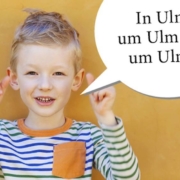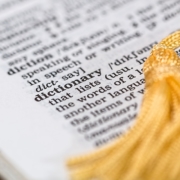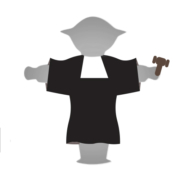Tongue twisters that will make you love – or hate – German
Every language has its own array of tongue twisters that have no purpose beyond than to test our ability to pronounce correctly words that share a similar sound.
One of their defining features is their nonsense and impossibility to translate them in a different language, precisely due to the fact that the sound of the words counts more than their meaning. Also German, obviously, has several: tune into the tongue twisters rhythm and think of those wonderfully long German words packed with consonants and hard sounds.. Ready for the challenge?
Zungenbrecher
In German tongue twisters are called Zungenbrecher, which literally means “tongue-breaker”, an ever more fitting term given that when attempting to pronounce them the feeling is more about not being capable of speaking anymore!
If you want to test your German pronunciation and impress you German course teacher, along with your patience, here are a few tongue twisters, selected by The Local, that we have elaborated with a few examples.
1. Fischers Fritz fischt frische Fische, frische Fische fischt Fischers Frizt.
This is amongst the most notorious German tongue-twisters: protagonist is Fritz, son of a fisherman, who fishes fresh fish. Although seemingly logical, try to read it quickly in German..
2. Blaukraut bleibt Blaukraut und Brautkleid bleibt Brautkleid.
Literally, this tongue twisters says that red cabbage remains red cabbage, and the dress of the bride remains the dress of the bride. Beyond the meaning, the language play is based on the consonance amid Blautkraut and Brautkleid.
3. Am zehnten zehnten um zehn Uhr zehn zogen zehn zahme Ziegen zehn Zentner Zucker zum Zoo.
This time around we are talking about 10 tamed sheeps whom on the 10th October at 10 o’clock transport 10 quintals of sugar to the zoo. Although the sheeps aren’t being eaten by the sixth sick sheikh, as in the notorious English tongue twister, they still remain protagonists of one of the toughest German ones.
4. Wenn Fliegen hinter Fliegen fliegen, fliegen Fliegen hinter Fliegen her.
If the flies fly behind the flies, then the flies fly after the flies. The sentence has no sense, but might be useful when revisiting the construction of the conditional period in German.
5. Zwischen zwei Zwetschgenzweigen sitzen zwei zechenschwarze tschechisch zwitschernde Zwergschwalben.
This sequence will challenge you, not only for the length of the sentence but also for its absurd meaning “two coal-black Czech-twittering pigmy swallows are sitting between two plum-tree branches” (or something like that…)
6. Lang schwang der Klang am Hang entlang.
The sound vibrates slowly along the slope. Might seem easy at first, but try to repeat this poetic sentence a few times in a row.
7. Gudruns Truthuhn tut gut ruhn.
Gudrun’s turkey is resting well. Blending both common expressions and a good dose of imagination, this is a particularly useful tongue twister.
8. Schnecken erschrecken, wenn sie an Schnecken schlecken, weil zum Schrecken vieler Schnecken Schnecken nicht schmecken.
Snails are horrified when snails lick snail, because to the horror of many snails, snails don’t like snails.
Cover photo © Cdn.familie.de




